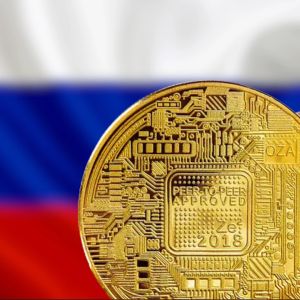The Bank of Russia has postponed the launch of the digital ruble. The project is still live, but the launch of the central bank digital currency (CBDC) will come “somewhat later” than July 1, when it was expected, Bank of Russia governor Elvira Nabiullina said. Nabiullina spoke at the annual meeting of the Association of Russian Banks on Feb. 27. She put a positive spin on her review of the year in banking. She acknowledged the challenges presented by inflation and the expanding sanctions that have taken a toll on the Russian economy. “The banking sector remains stable and profitable,” she said . Banks are reacting to the CBDC pilot project Bankers are asking about the upgrades necessary for the introduction of the digital ruble and asking for more time to implement them, Nabiullina said at the end of her speech. With this in mind, the bank has delayed the launch of the CBDC while the central bank works out the details of the pilot project. The central bank will also consult with the banks in the pilot project about the “economic model” that appeals most to their clients. The digital ruble pilot project began in 2023 and involved 15 banks and certain clients. In all, 1,700 individuals and 30 companies took part in the project. The first target date for its launch was mid-2024, but it has been postponed more than once already. The proposed digital ruble has a strong retail component. Nabiullina said banks saw the proposed CBDC’s programmability, that is, the use of smart contracts with the currency, as a key opportunity for them. That in particular will require more discussion and preparation, she said. It will also cost 200 million to 300 million rubles ($2.3 million to $3.4 million at the current exchange rate) per institution to implement, according to an estimate made in February 2024. The central bank would provide subsidies to smaller banks though. Big questions about the CBDC remain Financial consultant Olga Goncharova told the RBD information agency that programmable money is problematic because it undermines financial stability. It will have limited appeal to consumers, she added. Smart contracts would allow banks to receive mortgage payments promptly and could be used to enforce spending limits on government funds, but they do not do anything that could not be achieved by traditional means, Goncharova said. Telegram columnist Taisiya Romanova agreed that there is no immediate need for a CBDC. Experience with the few retail CBDCs that are already live shows that the public is generally apathetic to the new technology. A wholesale CBDC, that is, a digital currency for the use of financial institutions and international business, is often seen as a way to evade sanctions, Romanova told RBC, but “at the moment there are simply no partners for it.” CBDCs might be a way to evade sanctions Foreign trade with CBDCs would bypass the SWIFT messaging network and contribute to de-dollarization, that is, the displacement of the U.S. dollar as an international reserve and vehicle currency. Sanctions are imposed by excluding parties from SWIFT. There are already competing systems in place, however, and they have seen little demand. BRICS, the economic alliance of Brazil, Russia, India, China, South Africa, Egypt, Iran, Indonesia and Ethiopia, with eight “partner” countries, has experimented with settling international trade in local currencies. BRICS has created the BRICS Pay Consortium, which it describes as “operating under the principles of a decentralized autonomous organization (DAO).” It does not explicitly state that it operates on a blockchain, although it said the consortium tested blockchain technology. The system depends heavily on QR codes. The fundamental principles of the system were approved in 2024. It provides for both retail and wholesale uses. The consortium claims that BRICS Pay integrates with local payment systems and settles in local currencies. The source of its exchange rates is not specified and many of its functions are not available on its website. Nabilullina confirmed on Feb. 27 that Russia is planning to introduce a national QR code. The central bank is considering proposals from commercial banks and expects the QR to integrate into the National Payment Card System. That is the organization behind the Mir national payment system. Mir debuted in 2017 in response to international sanctions that limited the uses of international payment cards. CBDCs aren’t the only way to evade sanctions Project mBridge is perhaps a more viable alternative to SWIFT. The project seeks to bridge members’ CBDCs directly. It is a consortium created in 2021 among China, Hong Kong, Thailand and the United Arab Emirates. More than two dozen central banks and international financial institutions have observer status in the project. mBridge was developed under the aegis of the Bank for International Settlements, but that organization cut ties with it around the time it created a minimum viable product. That decision may have been due to U.S. pressure . Russia is not a participant in Project mBridge, but its technology is open-source and could be cloned. The current U.S. administration and conservative U.S. politicians in general are strongly opposed to CBDCs. President Donald Trump banned “any action to establish, issue, or promote CBDCs” and halted research on CBDCs in the United States in an executive order . Cryptopolitan Academy: Tired of market swings? Learn how DeFi can help you build steady passive income. Register Now


















